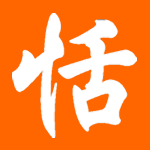I laughed at their Chinese characters sections because most of them is either incorrectly written or the translations are way off.
I was tempted to inform one of the shop owners about the mistakes, but I was amazed by the gibberish character henna’s popularity, she was too busy to satisfy customers' $5-per-piece consuming needs.
None the less, there were many young ladies with gibberish painted on their bodies.
The good news is that they will look like fools for only a week or so, and then the henna paint would wash off.


Here's the entry for 隹 zhui1 from Reading & Writing Chinese by William McNaughton & Li Ying: "Dictionaries often define zhui1 as 'short-tailed bird.' In some ancient texts it specifically means 'dove.'"
ReplyDeleteI always thought that was a strangely non-specific radical. I might start thinking of it as dove for making mnemonics.
ReplyDeleteAlan said...
ReplyDeleteIsn't the "dragon" character at the upper left of the third photo supposed to be 辰? It is of course very poorly written.
Oh, I think I saw the exact same thing at Six Flags last time I went. My friend and I were screaming with laughter, and this western lady asked us what was so funny, so we pointed out about ten problems from the pages.
ReplyDeleteI think I would have preferred some "Asian fonts"! At least then the writing wouldn't make my eyes bleed.
ReplyDeleteI think Alan is right. The dragon character should be 辰 as the Japanese write 龍年 as 辰年.
ReplyDeletePerhaps the "get together" one is 会?
ReplyDeleteJust a thought!
False character believed to mean "To Get Together" (First picture upper left) is the upper part of 合. This has a meaning of "To match" in Japanese and the word for "to get together, to meet" is 会. Both characters have similar Kun (Native Japanese) readings of "Au", the u part written in Hiragana as 合う and 会う
ReplyDeleteI think "get together" must be the top of 合.
ReplyDeleteI am mildly amused by the idea of a girl getting 平 thinking it means "peace", but it actually labels her "flat" or "mundane".
ReplyDeleteha ha ha, what a mishmash of orientalisms (incorrect characters in henna)
ReplyDelete辰=龙? Haven't seen that one, although don't know any Japanese. I know: blame dialects! It's not wrong, it's just the way it's done in a small village in southwestern Hebei. Sarcasm aside, it looks like those were just recopied badly several times and devolved to current form.
ReplyDeleteFor what it's worth, henna doesn't so much wash off as gradually wear off, so for example about a week after your henna's been done, you have a pale orange stain left on your skin, and after about 2 weeks the mark will be completely gone.
ReplyDeleteHenna is a regular fake tattoo material used here in Turkey too. Pictures, abstract patterns, Texts in Hanzi, Roman or Arabic...anything. There are pre-drawn stencils just for that purpose. Stick to the area, apply and get the paper out.
ReplyDeleteHenna is commonly found in Turkey and used for the traditional pre-wedding ceremony for the bride, and also as a hair-dye.
Addition to my post:
ReplyDeleteHenna used as a fake tattoo tool is not limited to stencils. Artists themselves apply to. Many of the pictures, patterns and writing are done by them
In response to an earlier comment, in Japanese at least, 平 has "peace" as a very extended meaning (flat-->mundane-->calm-->peace). It is used in the Japanese word for peace, 平和. I do agree that it's odd to choose the character by itself, however, since out of context its meanings are nothing I'd want to display.
ReplyDeleteDove is correct. 雙 <- shuang (in Mandarin), a pair. Notice the two doves on top of the 又. 隹 zhui is the word.
ReplyDeleteLooks like they ended up being hen na tattoos rather than henna tattoos, haha.
ReplyDelete